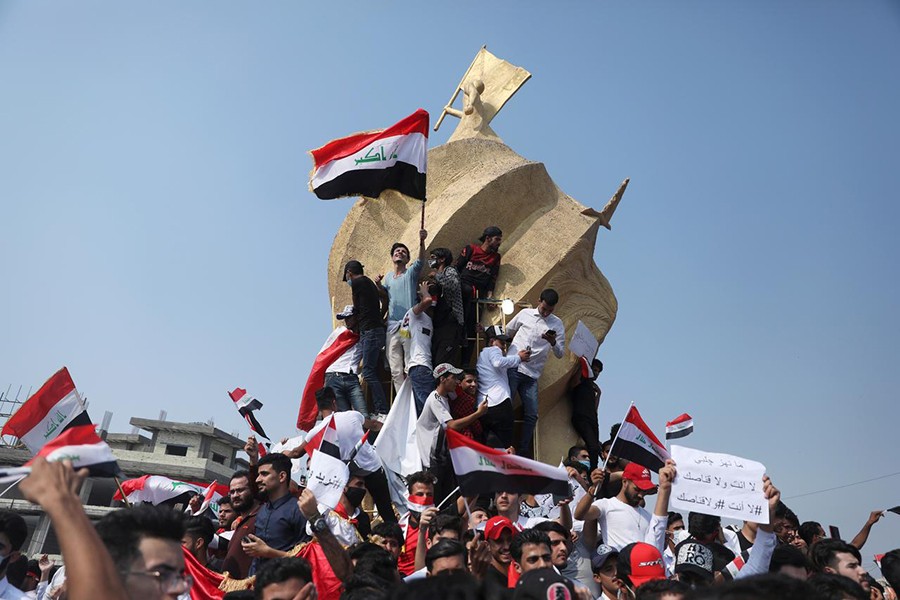Iraqi security forces killed at least 14 people in the Shi’ite holy city of Kerbala overnight after opening fire on protesters, medical and security sources said, in a return to tactics denounced by the government’s own internal inquiry.
At least 865 people were wounded, the sources said. Three protesters died in the southern city of Nassiriya from wounds sustained in earlier protests.
Iraqis took to the streets for a fourth day on Monday in a second wave of protests against Prime Minister Adel Abdul Mahdi’s government and a political elite they say are corrupt and out of touch. The total death toll since the unrest started on October 1 is now at least 250 people.
The unrest, driven by discontent over economic hardship and deep-seated corruption, has broken nearly two years of relative stability in Iraq, which from 2003 to 2017 endured a foreign occupation, civil war, and an Islamic State insurgency.
An Iraqi government committee investigating the first wave, which took place during the first week of October, found that 149 civilians were killed because security forces used excessive force and live fire to quell protests.
Its report, which said more than 70 per cent of the deaths were caused by shots to the head or chest, held senior commanders responsible but stopped short of blaming the prime minister and other top officials, saying there had been no order to shoot.
Protests stopped for two weeks before resuming on October 25.
Security forces fired tear gas on Monday at school and university students who defied a warning from Abdul Mahdi and joined thousands in Baghdad protesting against his government.
Soldiers were seen beating high school students with batons in two Baghdad districts. A Defense Ministry statement condemned the incident and said the soldiers did not represent the Iraqi army as a whole. It did not say if they would be punished.
Populist Shi’ite cleric Moqtada al-Sadr, who backs parliament’s largest bloc and helped bring Abdul Mahdi’s fragile coalition government to power, called on Monday for early elections after a curfew was announced in Baghdad.


